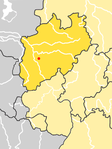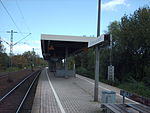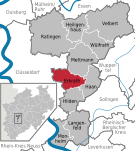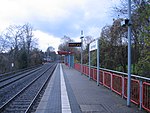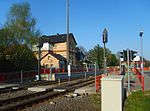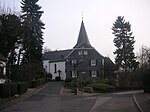Neanderthal Museum
Archaeological museums in GermanyArchaeological parksFossil museumsMuseums in North Rhine-WestphaliaNeanderthals ... and 1 more
Paleontology in Germany

The Neanderthal Museum is a museum in Mettmann, Germany. Located at the site of the first Neanderthal man discovery in the Neandertal, it features an exhibit centered on human evolution. The museum was constructed in 1996 to a design by the architects Zamp Kelp, Julius Krauss and Arno Brandlhuber and draws about 170,000 visitors per year. The museum also includes an archaeological park on the original discovery site, a Stone Age workshop, as well as an art trail named "human traces". All signs in the museum as well as the audio guide offered by the museum are available in German and English.
Excerpt from the Wikipedia article Neanderthal Museum (License: CC BY-SA 3.0, Authors, Images).Neanderthal Museum
Talstraße,
Geographical coordinates (GPS) Address Phone number Website External links Nearby Places Show on map
Geographical coordinates (GPS)
| Latitude | Longitude |
|---|---|
| N 51.226944444444 ° | E 6.9505555555556 ° |
Address
Neanderthal-Museum (Neanderthalmuseum;Neandertalmuseum;Neandertal-Museum)
Talstraße 300
40822
North Rhine-Westphalia, Germany
Open on Google Maps
